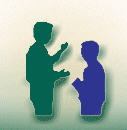
Progressive Stages of Consequence
©Copyright 2008, Budd Churchward
It would be nice if positive recognition was all that was required to encourage appropriate behavior in children. In actuality, negative consequences are an important part of behavior modification. Most schools have some system of consequences already in place and operating. Students are sent to the office, asked to stay after school, required to write notes to their parents, and in extreme situations suspended from school for one or more days.
The success of such negative consequences varies from school to school. Psychologists tell us, though, the best behavior modification systems include both positive recognition and appropriate consequences. Furthermore, such a discipline system must be perceived as fair and equitable as possible.
The Honor Level System provides you with the tools you need to do just that. Both recognition and appropriate consequence are easily administered with the aid of your office computer. A system of fairness exists whereby each student will feel that he or she is treated the same as any other.
A system of progressive discipline uses several stages of consequence. Each one is more significant than the one that comes before it. As a student moves from stage to stage, the disciplinary action taken by the school becomes more severe.
Your own staff chooses the actual consequences for your school. The following are sample stages:
- 1st infraction: 15 minute Noon Detention
- 2nd infraction: 30 minute Noon Detention
- 3rd infraction: After School Detention
- 4th infraction: In-school Suspension
- 5th infraction: Saturday School
- 6th infraction: Suspension from School
You may use up to seven stages of consequence. Click here to learn how to Edit the Consequences in your own HLS program. Note: It is also possible to change the pattern of consequences for an individual student using the consequence mask.
The Honor Level System provides for both forward and backward movement through these stages of consequence. Forward movement occurs as any individual student is cited again and again for infractions of school rules. We prefer to say: �fails to meet behavioral expectations.�
TIME HEALS THE WOUNDS
The mechanism for moving back to lower stages is time. If a student can stay out of trouble and show that there is a general change in behavior, he or she should move to lower stages of consequence.
When determining the appropriate stage of discipline, the computer will examine the record of behavior for the last fourteen days. The computer does not exclude weekends, holidays, or student absences. It examines fourteen days of the calendar. The term �3rd infraction� refers to the third infraction within a window of time that is only fourteen days long.
Your system may assign a student to after school detention two or three times in a row if the frequency of his or her infractions is about once every three or four days. It does not assign the fourth stage of consequence after the fourth infraction if the first infraction was more than 14 days in the past. The only way in which this child can reach lower stages of consequence is to decrease the frequency of citations. He or she will need to go more days in a row without problems.